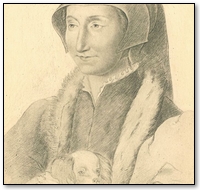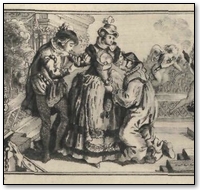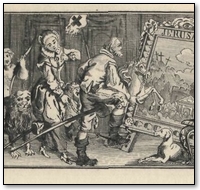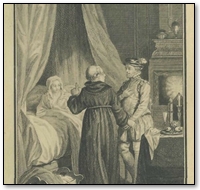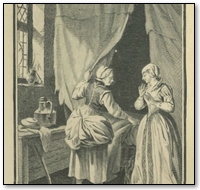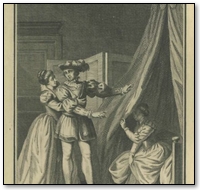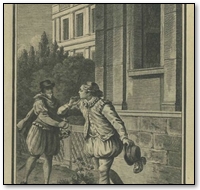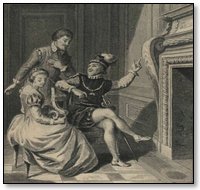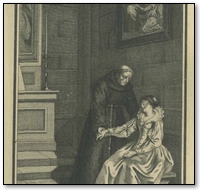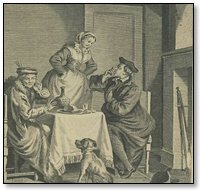The Heptameron - Day 7

Heptameron Day 7 |
What Stories Are Told on the Seventh Day of the Heptameron?
On the Seventh Day of the Heptameron the storytellers recount stories of those who have acted quite contrary to their duty or desire.
|

Heptameron Day 7 Summary The Life of Medieval Women 
The Theme of the Seventh Day |
The Stories Told on the Seventh Day of Heptameron
|
The Seventh Day
In the morning the Lady Oisille failed not to administer to them wholesome nutriment, which she did by reading of the acts and virtuous deeds of the glorious knights and apostles of Jesus Christ, as related by St. Luke, telling them withal that these relations should suffice to make them long for the return of such a time, and to make them weep for the uncomeliness of this age as compared with that. When she had sufficiently read and expounded to them the beginning of this excellent book, she begged them to go to the church in such union as that in which the Apostles were wont to pray, seeking of God the mercy which is never refused to those who ask for it in faith. Her counsel was approved by all, and they came to the church just as the Mass of the Holy Spirit was beginning; this seemed to them very apt to the occasion, and they hearkened to the service in great devotion.
Afterwards they went to dinner, where they called to mind the apostolic life, and took such great delight in it that it was as though their undertaking had been forgotten. But Nomerfide, who was the youngest, noticed this, and said, "The Lady Oisille has made us so devout that we are letting slip the hour at which we are wont to withdraw, in order to make ready for the relating of our tales."
Her words caused the whole company to rise, and, after they had been for a while in their rooms, they failed not to repair to the meadow as on the day before. When they were seated at their ease, the Lady Oisille said to Saffredent, "Although I am certain that you will say nothing to the advantage of women, yet I must call upon you to tell the tale that you had in readiness yester evening."
"I protest, madam," replied Saffredent, "against winning the repute of a slanderer through telling the truth, or losing the favour of virtuous ladies through relating the deeds of the wanton. I have felt what it is to lack their presence, and had I equally lacked their fair favours, I had not been alive to-day."
So saying, he turned his eyes away from her who was the cause of his happiness and of his woe; and, looking upon Ennasuite, caused her to blush as deeply as though his words had been directed to her. Yet was he none the less understood by her whom he desired should understand him. The Lady Oisille then assured him that he might freely speak the truth at the cost of any person concerned; whereupon he thus began:—
The FIRST Tale, of the Seventh DayOnline Edition of the Heptameron
This is the Heptameron of Marguerite de Navarre
Other Sites: CruikshankArt.com · Dante's Inferno · Book-Lover.com · Canterbury Tales ·
This site is created by the Heptameron Information Society.

